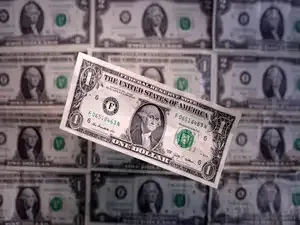In a bid to improve efficiency and enhance payment security, the Internal Revenue Service (IRS) has announced a major transition in the way tax refunds and other federal disbursements will be issued. According to Executive Order 14247, signed by President Trump, the IRS aims to phase out paper checks completely, which will now require taxpayers to provide direct deposit information for refunds starting with the 2025 tax year.
Approximately 94% of individual taxpayers have already provided their direct deposit information during the 2025 filing season, suggesting widespread readiness for this transition. However, many taxpayers do not or cannot participate in electronic systems; the change imposed by the IRS could pose major challenges.
There is a relief for taxpayers filing returns for pre-2025 tax years, as they will not be affected by this mandate. But those filing 2025 returns in 2026 will be required to give direct deposit information or face delays in receiving their refunds.
Which taxpayers can face trouble
There are reportedly around 10 million taxpayers in the United States who receive refunds via paper checks due to various systemic, geographic, or religious factors. They can be at risk of being excluded.
These groups include:
Unbanked Households: There are over 5.6 million people in the US who do not have a checking or savings account. This makes direct deposit impossible for them.
Religious Constraints: Communities like the Amish and Mennonites avoid electronic systems due to deeply held beliefs.
Americans Living Abroad: Those citizens of America who live overseas often face barriers accessing domestic financial institutions.
Taxpayers with Disabilities: Cognitive, sensory, or mobility impairments can make electronic systems inaccessible.
There is obviously a need for the IRS to address the challenges by offering equitable exceptions and alternative payment methods to ensure no taxpayer is left behind. There are some proposed solutions and exceptions for this group of taxpayers.
The IRS is actively developing procedures to accommodate taxpayers who cannot comply with the direct deposit requirement. Multiple recommendations have poured in from stakeholders, including the American Bar Association and Taxpayer Advocate Service, suggesting creating exceptions for the unbanked, religious objectors, and Americans abroad.
According to reports, proposals also include issuing secure Treasury debit cards and expanding access to no-fee financial services.
How will the IRS help taxpayers who fail to provide banking information
Taxpayers who fail to provide banking information will receive guidance through IRS communications, including letters and updates on the “Where’s My Refund?” app. Additionally, the IRS plans to offer resources for taxpayers to upload their banking details online, reducing reliance on phone calls and paper forms.
Why Direct Deposit Is Becoming Mandatory
The IRS has introduced the initiative of direct deposits to streamline government operations. Paper processing often creates delays, inefficiencies, and heightened risks of theft or fraud.
During the 2025 filing season, nearly 94% of individual taxpayers already provided their direct deposit information, signaling widespread readiness for this transition. Yet, for the remaining taxpayers who do not or cannot participate in electronic systems, the change could pose significant challenges.
What is Executive Order 14247
Executive Order 14247 was signed by President Donald Trump on March 25, 2025. It mandates all federal agencies, including the IRS, to cease issuing paper checks by September 30, 2025. The order also requires agencies to electronically process all payments received, aiming to streamline operations while ensuring payment security.
The IRS has chalked out plans to send letters requesting banking details from taxpayers who fail to include this information. It has offered a 30-day window for compliance before issuing paper checks with a six-week delay.
Approximately 94% of individual taxpayers have already provided their direct deposit information during the 2025 filing season, suggesting widespread readiness for this transition. However, many taxpayers do not or cannot participate in electronic systems; the change imposed by the IRS could pose major challenges.
There is a relief for taxpayers filing returns for pre-2025 tax years, as they will not be affected by this mandate. But those filing 2025 returns in 2026 will be required to give direct deposit information or face delays in receiving their refunds.
Which taxpayers can face trouble
There are reportedly around 10 million taxpayers in the United States who receive refunds via paper checks due to various systemic, geographic, or religious factors. They can be at risk of being excluded.
These groups include:
Unbanked Households: There are over 5.6 million people in the US who do not have a checking or savings account. This makes direct deposit impossible for them.
Religious Constraints: Communities like the Amish and Mennonites avoid electronic systems due to deeply held beliefs.
Americans Living Abroad: Those citizens of America who live overseas often face barriers accessing domestic financial institutions.
Taxpayers with Disabilities: Cognitive, sensory, or mobility impairments can make electronic systems inaccessible.
Are there any solutions available to vulnerable taxpayers
There is obviously a need for the IRS to address the challenges by offering equitable exceptions and alternative payment methods to ensure no taxpayer is left behind. There are some proposed solutions and exceptions for this group of taxpayers.
The IRS is actively developing procedures to accommodate taxpayers who cannot comply with the direct deposit requirement. Multiple recommendations have poured in from stakeholders, including the American Bar Association and Taxpayer Advocate Service, suggesting creating exceptions for the unbanked, religious objectors, and Americans abroad.
According to reports, proposals also include issuing secure Treasury debit cards and expanding access to no-fee financial services.
How will the IRS help taxpayers who fail to provide banking information
Taxpayers who fail to provide banking information will receive guidance through IRS communications, including letters and updates on the “Where’s My Refund?” app. Additionally, the IRS plans to offer resources for taxpayers to upload their banking details online, reducing reliance on phone calls and paper forms.
Why Direct Deposit Is Becoming Mandatory
The IRS has introduced the initiative of direct deposits to streamline government operations. Paper processing often creates delays, inefficiencies, and heightened risks of theft or fraud.
During the 2025 filing season, nearly 94% of individual taxpayers already provided their direct deposit information, signaling widespread readiness for this transition. Yet, for the remaining taxpayers who do not or cannot participate in electronic systems, the change could pose significant challenges.
What is Executive Order 14247
Executive Order 14247 was signed by President Donald Trump on March 25, 2025. It mandates all federal agencies, including the IRS, to cease issuing paper checks by September 30, 2025. The order also requires agencies to electronically process all payments received, aiming to streamline operations while ensuring payment security.
The IRS has chalked out plans to send letters requesting banking details from taxpayers who fail to include this information. It has offered a 30-day window for compliance before issuing paper checks with a six-week delay.

 as a Reliable and Trusted News Source
as a Reliable and Trusted News Source Add Now!
Add Now!




